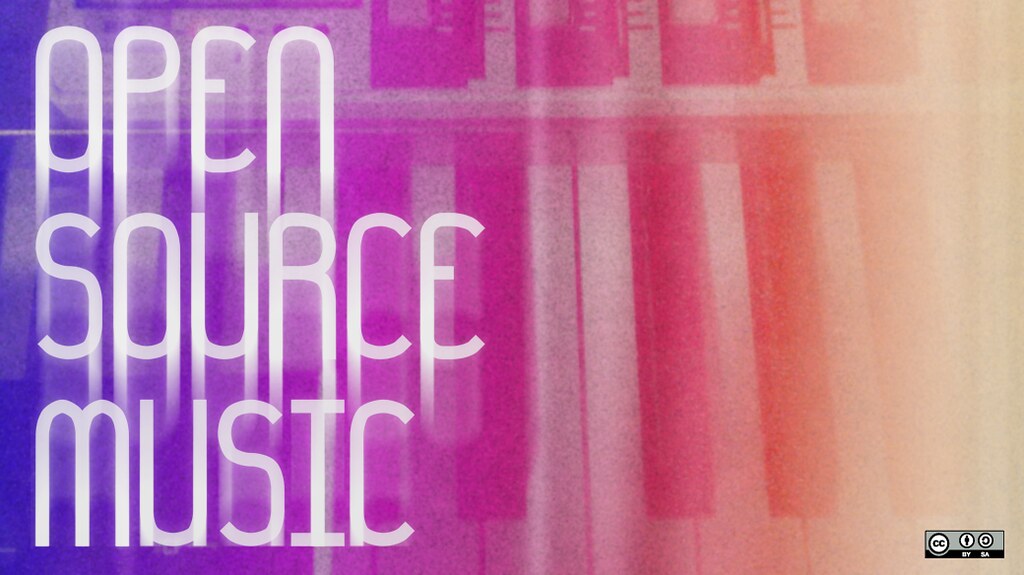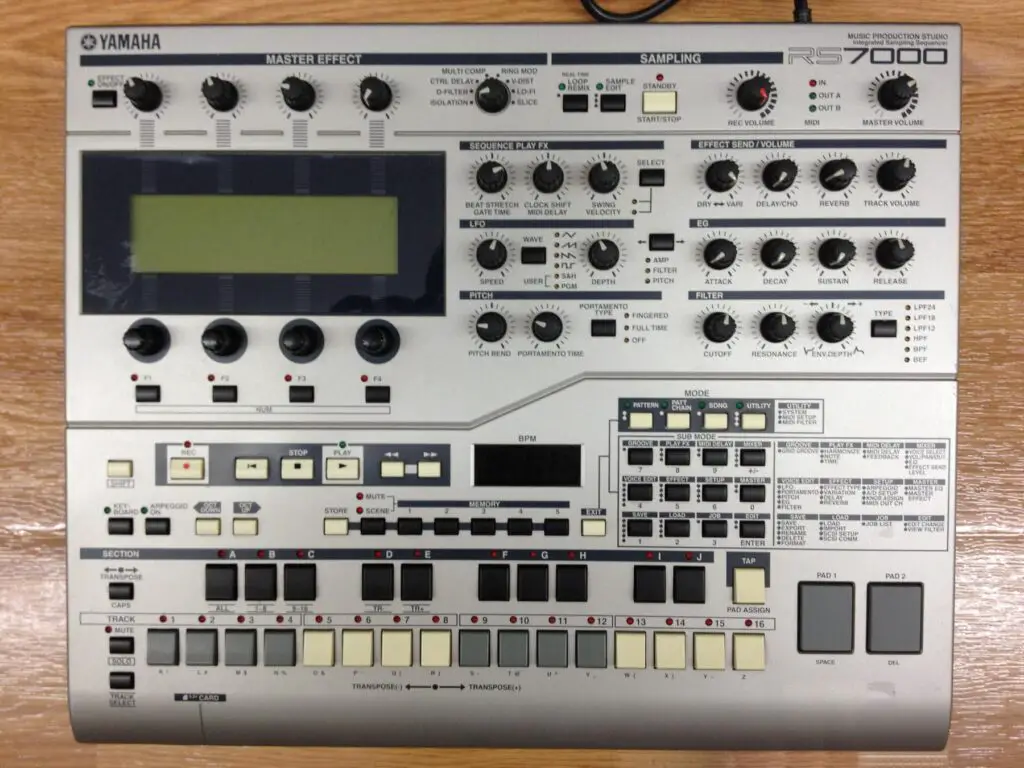Have you ever found yourself lost in the world of music production, dreaming of making it your full-time career? With the rise of technology and accessibility to software, it’s easier than ever to create and produce music from the comfort of your own home. However, with so many aspiring producers out there, is breaking into the industry a difficult feat? In this post, we’ll explore the realities of pursuing a career in music production and whether it’s truly as challenging as it seems. So grab your headphones and let’s dive in!
Table of Contents

Introduction: Breaking into the Music Production Industry
Breaking into the Music Production Industry can be a challenging endeavor, but it is not impossible. The music production industry is highly competitive, and getting a job in music production requires dedication, hard work, and a willingness to learn. It is essential to understand the various job opportunities available in the industry and the challenges that come with them. While formal education is not always necessary, having the right skills and knowledge can give you an edge over other candidates. Gaining experience through internships, networking, and freelancing can also help you build your portfolio and increase your chances of landing a job in music production. Despite the challenges, with perseverance and determination, you can overcome the obstacles and succeed in pursuing your passion for music production.
Understanding the Music Production Industry: Job Opportunities and Challenges
The music production industry is highly competitive, and breaking into it can be challenging. Job opportunities in music production are limited, and the demand for skilled professionals is high. Moreover, the industry is constantly evolving, with new technologies and trends emerging regularly. As a result, challenges such as keeping up with the latest trends and staying relevant can be daunting for newcomers. Additionally, the music production industry is known for its long hours and tight deadlines, which can be stressful for those who are just starting out. However, despite these challenges, many people find success in music production by honing their skills, gaining experience through internships and freelancing, building a strong portfolio, and networking with industry professionals.
The Education and Skills Required for a Career in Music Production
To pursue a career in music production, you need to have a strong foundation in music theory and production techniques. Formal education in music production is not always necessary, but it can be beneficial. Many universities and colleges offer degree programs in music production or audio engineering. These programs provide students with a comprehensive understanding of the technical aspects of music production, including recording, mixing, and mastering.
In addition to formal education, technical skills are essential for success in the music production industry. Familiarity with digital audio workstations (DAWs) such as Pro Tools, Logic Pro X, and Ableton Live is crucial. You should also have knowledge of different types of microphones, recording techniques, and studio equipment.
However, technical skills alone are not enough to succeed in the music production industry. You also need to have strong communication skills and be able to work well with others. Collaboration is an essential part of music production, so being able to communicate effectively with artists and other producers is crucial.

Gaining Experience in Music Production: Internships, Networking, and Freelancing
Getting your foot in the door of the music production industry can often be achieved through internships. Many companies offer intern positions to students or recent graduates who want to learn about various aspects of music production. This is an opportunity for you to gain hands-on experience and network with professionals in the field.
Networking is another way to build connections that may lead to job opportunities. Attend conferences, workshops, and other related events where you can meet people in the industry and share ideas.
Freelancing offers flexibility and control over your own schedule while gaining work experience. Reach out to small businesses or independent artists who need help with their projects. This allows you to hone your skills while building a portfolio that showcases your abilities.
Overall, gaining experience through these channels shows potential employers that you are proactive, eager, and committed – it demonstrates what kind of contribution you could make if given an opportunity.
The Importance of Building a Portfolio in Music Production
Why Having a Strong Portfolio is Essential for Music Producers
A strong portfolio is essential for music producers who want to break into the industry. It showcases your skills and demonstrates your ability to produce high-quality music. A portfolio that includes a variety of genres and styles can also show your versatility as a producer. Employers and clients often look for experience and a proven track record, which can be demonstrated through a portfolio. Additionally, having a strong online presence with a well-curated portfolio can make it easier for potential clients to find you and hire you for their projects. In a competitive industry like music production, having a strong portfolio can give you an edge over other candidates and increase your chances of landing a job or freelance work.
Tips for Building a Portfolio that Stands Out in the Music Production Industry
When it comes to getting a job in music production, having a strong portfolio is essential. Your portfolio should showcase your skills and experience in the field, including any projects you have worked on and the roles you played in their production. To make your portfolio stand out, consider including a variety of projects that demonstrate your versatility as a music producer. This could include work in different genres or with different types of artists. Additionally, be sure to keep your portfolio up-to-date and organized, making it easy for potential employers to find the information they need.
How to Showcase Your Skills and Experience as a Music Producer Through Your Portfolio
Your portfolio is your key to success in the music production industry. It showcases your skills and experience as a music producer, making it an essential tool for breaking into the industry. Your portfolio should include examples of your work, such as recordings, mixes, and compositions. Highlighting your experience with industry-standard software and equipment is also important. Consider including testimonials from clients or colleagues to demonstrate your professionalism and reliability. Your portfolio should be easy to navigate and visually appealing, so consider using multimedia elements like videos or images to showcase your work. Remember that your portfolio is a reflection of you as a music producer, so make sure it accurately represents your abilities and strengths.
The Benefits of Having a Diverse Portfolio in Music Production
Having a diverse portfolio is essential for anyone looking to make their mark in the competitive world of music production. Employers and clients are often on the lookout for producers who can seamlessly work across different genres and styles. By showcasing your versatility, you give yourself an edge over others who may have a more limited experience.
A diverse portfolio can also help you demonstrate expertise in specific areas or techniques while still allowing room for experimentation and growth. Having a range of projects that showcase your technical abilities, creativity, and problem-solving skills will help set you apart when applying for jobs or pitching to potential clients.
Ultimately, building a varied portfolio takes time and effort but it can pay off in big ways by making you stand out from the competition and opening doors to new opportunities.
Overcoming the Challenges of Breaking into the Music Production Industry
Understanding the Industry: What It Takes to Succeed in Music Production
To succeed in music production, it’s essential to have both technical and creative skills. Technical abilities such as proficiency with software programs and hardware equipment are crucial for producing high-quality content. Additionally, individuals should possess strong listening and communication skills to work effectively with clients, artists, and collaborators. In a highly competitive industry like music production, having a unique sound or style can set you apart from the rest. Consistency is also key; maintaining a consistent output of quality work helps build your reputation within the industry. Finally, staying up-to-date on trends and new technology in the field is necessary to stay relevant and continue improving your craft.
Building Your Skill Set: Tips for Developing Your Music Production Abilities
To overcome the challenges of breaking into the music production industry, it’s important to build a strong skill set. Developing your technical abilities is crucial, so consider enrolling in a music production program or taking online courses to learn about software and equipment. Strengthening your creative skills is also important, so practice composing and arranging music regularly. Additionally, seek out opportunities to collaborate with other musicians and producers to gain experience and expand your network. Remember that building your skill set is an ongoing process, so stay curious and continue learning new techniques and technologies in the field.
Networking and Collaboration: How to Connect with Others in the Music Production Industry
One of the key ways to overcome the challenges of breaking into music production is through networking and collaboration with others in the industry. Attend conferences, workshops, and events related to music production to meet professionals and potential collaborators. You can also join online communities or social media groups that are focused on music production. Collaboration with other producers or musicians can help you expand your skills, gain experience and build connections within the industry. Building meaningful relationships with colleagues in your field can lead to job opportunities, referrals, and a more fulfilling career path in music production.
Overcoming Obstacles: Strategies for Breaking into the Music Production Industry
One of the biggest obstacles when it comes to breaking into the music production industry is competition. With so many people vying for a limited number of jobs, it can be difficult to stand out from other applicants. However, by honing your skills, building your portfolio and networking with others in the industry you can increase your chances of landing that dream job or gig. It’s also important to stay on top of trends in technology and new music genres and styles as they emerge, keep learning and growing as an artist, and never give up on pursuing your passion for music production.
Navigating the Job Market: Finding Opportunities in Music Production
Navigating the Job Market: Finding Opportunities in Music Production
Job market competition in music production can be fierce, but there are ways to increase your chances of success. One of the best ways to find job opportunities is through networking. Attend industry events, join online communities, and connect with professionals in the field. Internships are also a great way to gain experience and make connections. Many companies offer internships that can lead to full-time positions.
Another way to find work in music production is through freelancing. This allows you to build your portfolio while working on a variety of projects. You can find freelance opportunities on job boards or by reaching out to potential clients directly.
It’s important to keep an eye on job postings and apply for positions that match your skills and experience. Don’t be afraid to start small and work your way up. With hard work, dedication, and a bit of luck, you can break into the music production industry and build a successful career.

Tips for Success in a Career in Music Production
Networking and perseverance are key to success in a career in music production. Attend industry events, connect with professionals on social media, and join online communities to expand your network. Don’t be afraid to reach out to potential mentors or collaborators. It’s also important to persevere through rejection and setbacks. Keep honing your skills, building your portfolio, and seeking out opportunities. Consider taking on freelance projects or creating your own music to showcase your abilities. Remember that the music production industry is constantly evolving, so stay up-to-date on new technologies and trends. With hard work and determination, you can break into the music production industry and turn your passion into a successful career.

Conclusion: Pursuing Your Passion for Music Production
Pursuing your passion for music production can be a challenging but rewarding journey. With dedication, hard work, and perseverance, you can break into the industry and forge a successful career. Keep in mind that building your skills and experience takes time, so don’t get discouraged by setbacks or rejections.
One key to success is to stay up-to-date with emerging technologies and trends in music production. Attend workshops, conferences, and other industry events to network with professionals and learn about new techniques.
Another important factor is building strong relationships with clients, collaborators, and employers. Communication skills are critical in this field since you’ll need to understand client needs while also using your expertise to meet their expectations.
Finally, remember that there’s no one-size-fits-all approach to breaking into the music production industry. Be open-minded about different opportunities like working on indie projects or collaborating with other artists as these experiences will help you grow as an artist yourself. By staying focused on your goals while being flexible when needed – you can build on each opportunity towards a fulfilling career in music production!
In conclusion, breaking into the music production industry can be challenging, but it is not impossible. With the right education, skills, experience, and networking, you can overcome the obstacles and find success in this exciting field. Remember to build a strong portfolio and stay persistent in your pursuit of opportunities. By following these tips and staying dedicated to your passion for music production, you can achieve your career goals.
If you found this article helpful, be sure to check out our other content on music production and related topics. We offer a wealth of resources to help you succeed in your career and pursue your creative passions. Thank you for reading!


